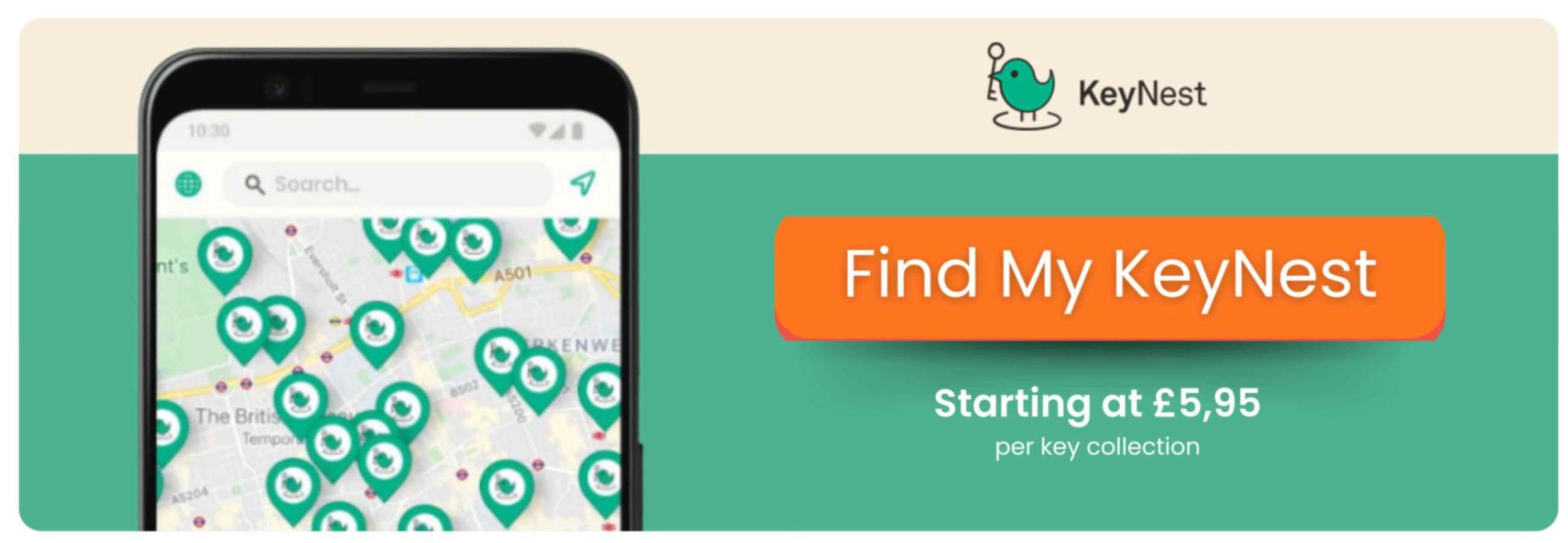Over 1500 key exchange locations nationwide
Scotland's New Short-Term Lets Licensing Scheme This 2025
As of 2025, Scotland short-let licensing authority has introduced a new law that aims to regulate and transform the Airbnb market. This development has far-reaching implications for both homeowners and and short term let renters seeking a more flexible and cost-effective way to experience life in different parts of the country. With the growing number of short-term rentals and popularity of house swapping, it’s crucial for operators to stay informed about the legal landscape to avoid any potential pitfalls.
The new licensing law from local authorities, which requires home letting individuals and property managers to obtain a license for property exchange, is poised to reshape the house swapping scene creating a more regulated and transparent environment. Notably, the changes come as part of the Scottish government's broader effort to address the number of short-term lets and housing issues and ensure fairness within the short-term rental market. As a result, house swappers and property managers are now facing new challenges and opportunities that could affect everything from legal responsibilities to the cost of home exchanges.
In this article, we’ll delve into the key aspects of the new licensing law and explore its impact on the house swapping community across Scotland. From compliance requirements to the effects on costs, this article serves as guidance for hosts and uncover how this legislation is expected to influence the market and what homeowners and renters need to consider moving forward.
1. The New Licensing Law: What’s Changed For House Swapping In Scotland?
The new licensing law for short-term let accommodation in Scotland comes with significant changes that affect the way individuals and property managers approach house swapping. Homeowners and renters of any property for short-term alike must now adhere to certain legal requirements and planning permission that they may not have previously encountered. The law aims to ensure that house swapping for short-term rental properties operates within a regulated framework, which can help address concerns related to property safety, standards and fairness.
With these laws and regulations, the Scottish council area is taking steps toward better consumer and landlord protection, giving both hosts and guests greater clarity on their rights and responsibilities.
Key change: A mandatory license is required for property switching.
Purpose: To regulate house switching and ensure safety and fairness.
Consumer protection: The law helps protect both parties involved in a swap.
Enforcement: Property managers must now meet new legal standards.
Impact: Homeowners need to factor in licensing costs when swapping from primary residence.
Challenges: Increased paperwork and compliance requirements.
Opportunity: A more transparent and reliable system for house switching as a holiday home.
2. Compliance To Licence Requirements: What You Need to Know
With the new licensing law in place by the Scottish government, understanding the compliance requirements is crucial for anyone looking to swap houses in Scotland. Homeowners and property managers must familiarize themselves with the steps necessary to obtain and maintain their rent licenses. The application process may involve property inspections, submission of relevant documents and payment of licensing fees.
Moreover, ongoing inspections and reporting are expected and need to recognise to ensure compliance throughout the duration of the swap. Non-compliance with these regulations can result in fines or legal action, making it vital to stay up to date with the law’s requirements.
Application form process: Involves submitting paperwork and property inspections.
Fees: Licensing comes with a financial cost, which varies by property.
Inspections: Ongoing property checks to ensure safety and compliance for certain circumstances.
Reporting: Regular updates and documents may be required.
Consequences: Fines and penalties for non-compliance.
Legal implications: Risk of legal actions if regulations are not followed.
Key takeaway: Proper documentation and timely application are essential.
3. How The Licensing Law Affects Costs For Types Of Accommodation
One of the most immediate impacts of the new licensing law is the potential increase in costs for house switching in Scotland. Homeowners and property managers may face upfront expenses, including licensing fees, property inspections, and ongoing administrative costs.
For renters and guests, the increased financial burden could be passed on in the form of higher swap fees or additional charges. While the law seeks to improve the industry, there’s a possibility that these additional costs could make house switchings less affordable for some in the rental sector.
Upfront costs: Fees for licensing applications and property inspections.
Increased fees: Higher costs for renters and guests may result.
Admin costs: Ongoing expenses related to paperwork and compliance.
Effect on affordability: House switchings may become more expensive and self-catering accommodation can be a solution instead.
Property managers: Could raise prices to cover new costs.
Market impact: Potential decline in the number of affordable swaps.
Important takeaway: The law could raise costs for both property owners and renters for types of properties.
4. Ensuring Fairness For Airbnb Hosts & Guests
The new law is designed to offer enhanced consumer protection, which can be a significant benefit for both hosts and guests in house switchings. With more transparency and clearer guidelines, individuals can have greater peace of mind knowing that safety standards and legal protections are in place.
This includes ensuring that properties meet certain health and safety standards, reducing the risks of disputes over property mandatory conditions. Hosts can also feel more secure in knowing that their property is being used legally and responsibly.
Safety standards: Properties must meet health and safety requirements.
Legal protections: Hosts and guests are better protected under the law.
Transparency: Important for guidelines to make it clear in preventing misunderstandings and disputes.
Accountability: Both parties are held responsible for adhering to standards.
Dispute resolution: The law provides mechanisms for resolving issues for anything need to pay.
Security for hosts: Ensures properties are used responsibly.
Benefit for guests: Ensures a safer and more reliable swapping experience.
5. The Future Of House Swapping In Scotland
The introduction of the new licensing law opens up both opportunities and challenges for the house switching community. On the one hand, a more regulated environment could lead to better standards and greater consumer confidence in house exchanges. On the other hand, the costs and administrative hurdles involved may deter some individuals from participating in the market.
Property managers will need to navigate this complex landscape, balancing compliance with the need to maintain profitability. Overall, the future of house exchanges in Scotland will depend on how effectively both individuals and the government adapt to the new regulations.
Opportunities: Better standards and increased consumer trust.
Challenges: High costs and regulatory complexity.
Profitability: Property managers need to balance compliance and costs.
Future outlook: The industry could become more professionalized.
Adaptability: Both hosts and renters will need to adjust.
Growth potential: A regulated market might attract more long-term investors.
Uncertainty: How the market will evolve depends on regulatory impacts.
6. What Homeowners And Renters Should Consider Moving Forward
For anyone planning to participate in house exchanges in Scotland under the new licensing law, there are several key considerations to keep in mind. Homeowners will need to assess the cost and feasibility of obtaining a license, while renters should evaluate the increased costs, legal issues and potential benefits.
Additionally, both parties must stay informed about the specific legal requirements and updates to the law. Understanding the long-term implications of these changes is critical and an important consideration for making the best decisions when it comes to house exchanges in Scotland.
Cost assessment: Homeowners must consider licensing fees and other costs.
Renters’ perspective: Be aware of potential price hikes.
Legal requirements: Stay up to date on licensing regulations.
Long-term impact: Consider how the law might affect the market over time.
Strategic planning: Weigh the benefits and challenges before swapping.
Licensing process: Understand additional information on what is needed to secure a license.
Key advice: Be proactive in ensuring compliance with the new law.
How To Navigate The New Licensing Law In Scotland
The new licensing law for house exchanges in Scotland introduces both challenges and opportunities for homeowners, property managers, and renters. While it aims to improve the industry by enhancing safety standards and offering greater consumer protection, the costs associated with obtaining and maintaining a license could impact the affordability of swaps.
For those looking to swap houses, it’s crucial to stay informed about the legal requirements and assess the potential impact on both their personal finances and the overall market. As the landscape of house exchanges continues to evolve, the key to success will lie in understanding the regulations, planning accordingly, and navigating the changing market with a clear strategy.
Whether you are a homeowner, renter, or property manager, the new law will require careful consideration and adaptation. By taking the time to fully comprehend the changes, you can ensure that your house exchanges experience remains smooth, secure, and beneficial.
About Us
KeyNest offers you a convenient service for storing and exchanging your property keys. You can drop off a key at any of the 7,000+ locations in our network, so there’s one such Point located next to your property.
Guests, cleaners or contractors can then collect the key securely from a KeyNest Point or KeyNest Locker which is usually open 24/7. You'll be notified each time the key is picked up or returned, and you can even customize check-in and check-out times. By leveraging technology and a global network of locations, KeyNest continues to redefine property management, offering solutions tailored to meet the evolving needs of the rental market..
KeyNest has an ever-expanding global network of locations located just minutes from your property. To find out more you can contact us.
Neil Beltran 3 February 2025




